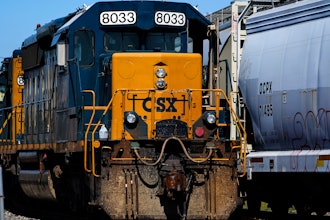WASHINGON -- The National Association of Manufacturers (NAM) today released a new report, Fiscal Shock: America’s Economic Crisis, that shows that the United States is already struggling due to Washington’s failure to address the pending fiscal cliff. The report indicates that there will be a 0.6 percent loss in GDP growth by the end of 2012. It is unsurprising that, according to recent surveys, 55 percent of manufacturers and other small business owners wouldn’t start their business in today’s climate.
Yet, if the United States falls off the fiscal cliff, the effects will be far worse. The report displays the significant harm massive tax increases and sequestration cuts will have to the United States over the next three years. The results include the following:
- More than 6 million jobs lost
- Unemployment rate of more than 11 percent
- A cumulative 12.8 percent drop in GDP
- 10 percent loss in household income
- A recession in 2013 and dramatically slowed growth in 2014
“The fiscal cliff has forced manufacturers to plan for a future in which business is down and their tax bills are up,” said NAM President and CEO Jay Timmons. “Manufacturers have had to put off plans to expand and hire new workers to protect themselves against an increasingly negative business climate—resulting in slowing economic growth and job loss in the manufacturing community. If we fall off the fiscal cliff, another recession is almost guaranteed, and we will see 6 million more people out of work. Manufacturers will lose the workers needed to drive American innovation, and the industry may suffer an irreparable setback.”
Mary Andringa, NAM Board chair and president and CEO of Vermeer Corporation, remarked, “The very prospect of a fiscal cliff creates tremendous uncertainty for the markets we serve. For Vermeer, this uncertainty delays economic growth and forces us to be more cautious in a number of areas, limiting all but the most critical hiring. If we fall off the fiscal cliff, with 6 million jobs lost and the country slipping back into a recession, it would be extremely difficult for manufacturers to compete in such a negative environment for business.”
The report finds that if we fall off the fiscal cliff, it will take most of the decade for economic activity and employment levels to recover from the fiscal shock. Another recession could deal a substantial blow to long-term economic potential, permanently reducing living standards in the United States.
Timmons also commented, “The reality of the fiscal cliff is that it is entirely self-inflicted. We have put ourselves in a situation where our economic and national security is threatened by our own hand. Yet, because it is self-inflicted, we have the ability to fix this and put the United States on the right track. This will require a commitment from the President and Congress to address the unsustainable entitlement programs driving our national debt, halt the looming tax increases and sequestration that will push our nation off the fiscal cliff and enact pro-growth tax reform that will enable manufacturers to continue to lead our economy.”
Click here to read the summary of Fiscal Shock: America’s Economic Crisis.
Click here to read the full report.






















